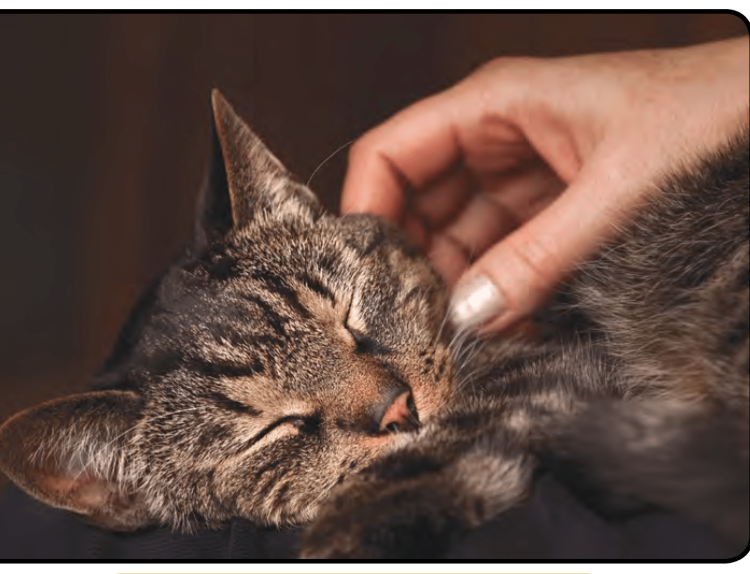Exploring the Average Neutered Male Cat Weight: Unveiling the Healthy Feline Balance

The companionship between humans and felines has a rich history, dating back thousands of years. Today, as cats have become cherished members of countless households, understanding their health and well-being is paramount. Neutering is a common practice to control the feline population and manage certain behaviors. As responsible pet owners, it’s crucial to delve into various aspects of our feline friends’ lives, including their average neutered male cat weight.
The Impact of Neutering:
Neutering is a surgical procedure that involves removing a male cat’s testicles, rendering him incapable of reproducing. While this procedure has numerous benefits, such as reducing the risk of certain diseases and minimizing undesirable behaviors like spraying and roaming, it can also influence a cat’s weight.
On average, neutering tends to cause a slight increase in a cat’s weight. This can be attributed to changes in their metabolism and activity levels. Understanding the factors that contribute to the average neutered male cat weight is crucial for maintaining their overall health and well-being.
Factors Affecting Neutered Male Cat Weight:
- Age: The age at which a cat is neutered can impact its weight. Cats neutered at a younger age may experience a more noticeable increase in weight compared to those neutered later in life. This is because the hormonal changes associated with neutering can affect the metabolism and growth patterns of younger cats.
- Diet and Nutrition: The type and quality of food a cat consumes play a significant role in its weight. Neutered male cats may have a tendency to gain weight if their diet is not carefully monitored. Switching to a specially formulated, balanced diet for neutered cats can help manage their weight more effectively.
- Activity Levels: Neutered cats may become less active, which can contribute to weight gain. Regular exercise is essential for maintaining a healthy weight, so engaging in playtime and providing stimulating toys can help prevent excessive weight gain.
- Metabolism: Neutering can alter a cat’s metabolism, slowing it down and making it more prone to weight gain. Monitoring calorie intake and adjusting feeding portions accordingly is crucial to preventing obesity.
- Genetics: Just like humans, cats have different genetic predispositions that influence their weight. Some breeds may be more prone to obesity, while others may naturally maintain a leaner physique.
Understanding the Healthy Weight Range:
The healthy weight range for neutered male cats can vary depending on factors like breed, size, and overall health. On average, a neutered male cat may weigh between 10 to 15 pounds (4.5 to 6.8 kg). However, it’s essential to consult with a veterinarian to determine the ideal weight for a specific cat based on its individual characteristics.
Preventing Obesity in Neutered Male Cats:
- Balanced Diet: Feeding a balanced and nutritionally appropriate diet is crucial for maintaining a healthy weight. Opt for cat food specifically formulated for neutered cats, which often contains fewer calories to support weight management.
- Portion Control: Avoid overfeeding by carefully measuring food portions and adhering to feeding guidelines. Regularly assess a cat’s body condition and adjust portion sizes accordingly.
- Regular Exercise: Encourage regular exercise through interactive play and the provision of toys that stimulate physical activity. Cats enjoy activities like chasing toys, climbing, and exploring, which contribute to calorie burning.
- Regular Veterinary Check-ups: Schedule regular check-ups with a veterinarian to monitor a cat’s weight, overall health, and address any concerns promptly. Early intervention is key to preventing obesity-related health issues.
- Hydration: Ensure an adequate supply of fresh water, as proper hydration is essential for overall health and can aid in weight management.
Conclusion:
The average neutered male cat weight is a topic that warrants attention from responsible pet owners. While neutering offers various benefits, understanding its impact on a cat’s weight and taking proactive measures to maintain a healthy balance is crucial. By focusing on factors such as diet, exercise, and regular veterinary care, cat owners can ensure their feline companions lead happy, healthy lives. Remember, each cat is unique, and consulting with a veterinarian will help tailor a plan that suits an individual cat’s needs, ensuring a lifetime of optimal well-being.
What is the average weight of a neutered male cat?
A1: The average weight of a neutered male cat can vary based on factors like breed, age, and overall health. Generally, neutered male cats weigh between 4.5 to 6.8 kilograms (10 to 15 pounds).
Does neutering affect a cat’s weight?
A2: Yes, neutering can influence a cat’s weight. Neutered male cats may experience a slight weight gain due to changes in metabolism and activity levels. It’s important to monitor their diet and exercise to prevent obesity.
At what age should a male cat be neutered, considering weight gain?
A3: Neutering is typically recommended between 4 to 6 months of age. Cats neutered at a younger age may experience more noticeable weight gain, so monitoring their diet and activity levels is crucial.
How can I prevent my neutered male cat from becoming overweight?
A4: To prevent weight gain, provide a balanced diet formulated for neutered cats, control portion sizes, encourage regular exercise through play, and schedule regular veterinary check-ups to monitor weight and overall health.
What factors contribute to weight gain in neutered male cats?
A5: Several factors can contribute to weight gain, including age, diet, reduced activity levels, changes in metabolism, and genetic predispositions. Monitoring these factors and making adjustments as needed can help manage a cat’s weight effectively.
Are there specific cat breeds more prone to weight gain?
A6: While weight gain can occur in any breed, some may be more prone to obesity. Breeds like the British Shorthair and Maine Coon are known to have a tendency to gain weight, emphasizing the importance of monitoring their diet and activity levels.
How can I tell if my neutered male cat is overweight?
A7: Regularly assess your cat’s body condition by feeling for ribs and observing its overall shape. If you notice excessive padding around the ribs or a lack of a defined waistline, it may indicate overweight. Consult with a veterinarian for a professional evaluation.
Should I switch to a specific diet for neutered cats?
A8: Yes, feeding a specially formulated diet for neutered cats can help manage weight. These diets often have controlled calorie content to prevent excessive weight gain.
Can weight gain in neutered male cats lead to health issues?
A9: Yes, obesity in cats can contribute to various health issues such as diabetes, arthritis, and cardiovascular problems. Maintaining a healthy weight is crucial for their overall well-being.
How can I encourage my neutered male cat to exercise?
A10: Engage in interactive play with toys, provide scratching posts, and create an enriched environment to stimulate physical activity. Rotate toys regularly to keep them interesting and encourage your cat to move and play.






